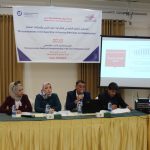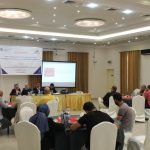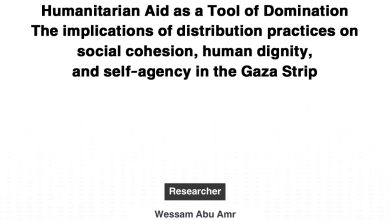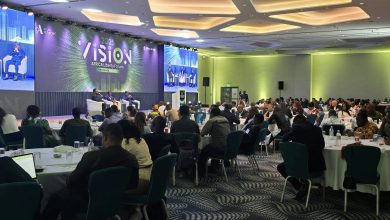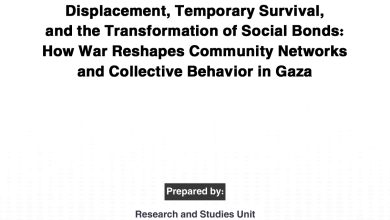PalThink holds panel session discussing research paper on Microenterprises in Gaza
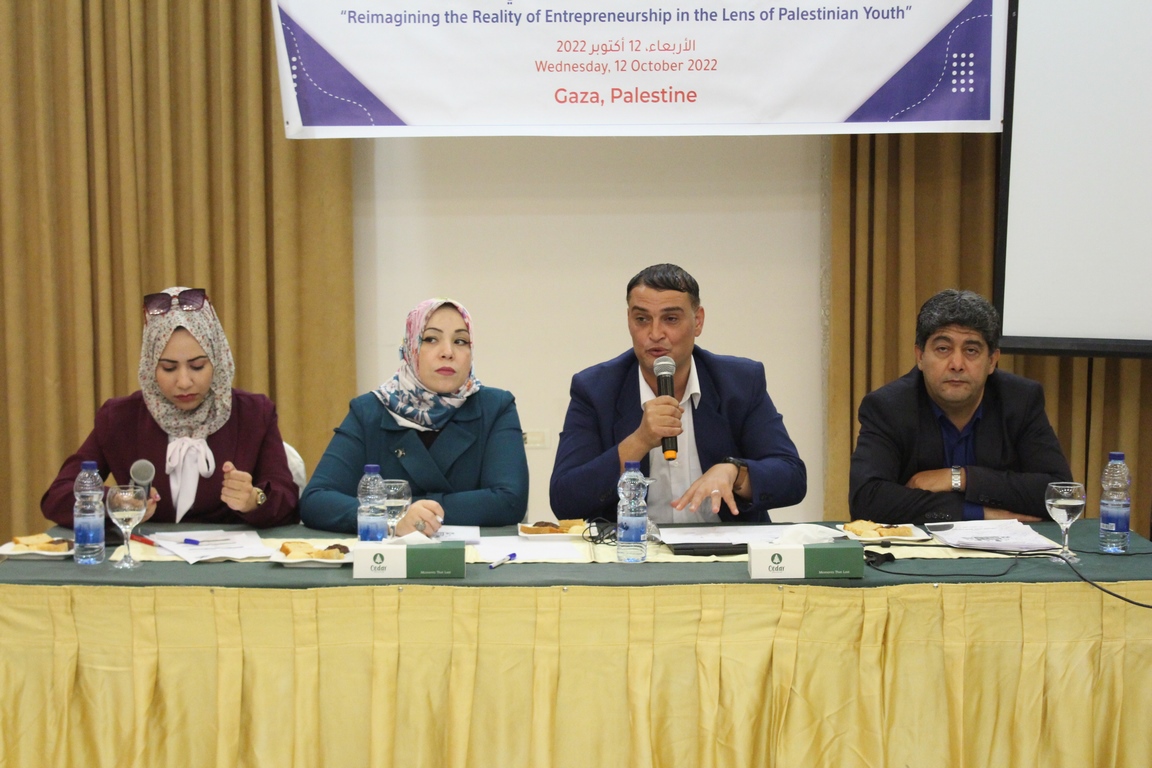
In continuation of its tireless efforts to shed light on ways to improve the economy of the Gaza Strip, PalThink for Strategic Studies has held a panel session to discuss a working paper on “Microenterprises in the Gaza Strip: Enhancing Potentials and Opportunities,” prepared by researcher Raed Helles.
Attended by economic researchers and representatives of civil society and government institutions, the session comes within the “Reimagining the Reality of Entrepreneurship in the Lens of Palestinian Youth” project, supported by the Friedrich Naumann Foundation for Freedom.
Moderated by Suha Sukkar, one of the project’s trainees, the session was opened by researcher Yahya Qaoud, who welcomed the attendees and said that the project seeks to spread the culture of entrepreneurship among young people and address the obstacles and difficulties that stand in their way through scientific research papers that will be submitted to decision-makers.
The author of the paper, researcher Raed Helles, said that microenterprises are the nucleus of small, medium, and large businesses and that they play an important role in creating job opportunities and promoting increased youth participation in the economic field.
He pointed out that the study aims to encourage young people to establish microenterprises.
The paper examines the demographic indicators, the local labor market, and the obstacles facing young people, in addition to the types of economic activities of these projects, the reasons for their success and failure, and ways to enhance their resilience.
Helles said that there were 46,825 projects in 2017 in the Gaza Strip, 89% of which were microenterprises, the largest percentage of them are engaged in wholesale trade and vehicle repair activities, and the rest are in services, economic activities, manufacturing industries, accommodation, food, health, and social work.
As for the reasons for the failure of the projects, the researcher said that they include limited invested capital, increased investment risks, reliance on intensive labor, weak project feasibility studies, reliance on inherited and family experiences, and difficulty in obtaining soft loans.
He concluded by proposing five steps to enhance the chances of success of microenterprises in the Gaza Strip: correcting the path, incubating, enhancing resilience, empowerment, and sustainability.
In turn, lecturer in business administration Amal Al-Hela thanked PalThink and the researcher on the research paper.
She pointed to the need to define criteria for classifying small and micro projects and the importance of highlighting the reasons for the failure of some projects in certain economic activities such as services and manufacturing industries.
The study’s proposals need more clarification in terms of the measures to be taken, and focus on the role of government institutions, civil society, and banks in the success of these projects, she said.
On the other hand, Salama Abu Zuaiter, a member of the General Secretariat of the General Federation of Palestinian Trade Unions, commented on the paper by thanking PalThink for training young people, who suffer a lack of attention from decision-makers.
He said, “studies are supposed to be an aid to decision-makers. The process of directing young people’s thinking towards pioneering projects necessitates intensifying the efforts of the actors in the field.”
Abu Zuaiter explained that the reasons for the failure of microenterprises need to be studied in depth and that the study’s proposals to strengthen these projects are “very important”.
He added, “There should be a fund dedicated to compensating microenterprises in case of disasters.”
Louay Al-Madhoun, Commissioner-General of the Ministry of Social Development in the Gaza Strip, said that many major projects in Gaza have failed due to the blockade, stressing that the division is the main dilemma in the face of the Gazan economy.
He added, “The Ministry of Development will soon launch a development institution in Palestine and a project worth half a million dollars to support small and micro projects, and it will provide financial grants ranging from $1,000 to $5,000, and interest-free loans from $5,000 to $15,000.”
Attendees’ questions revolved around the role of government policies in supporting the resilience of small businesses under occupation, the importance of bridging the gap between university education and the requirements of the labor market in enabling young people to obtain jobs and launch their projects to reduce unemployment, and the role of the Ministry of Social Development in supporting small projects.







